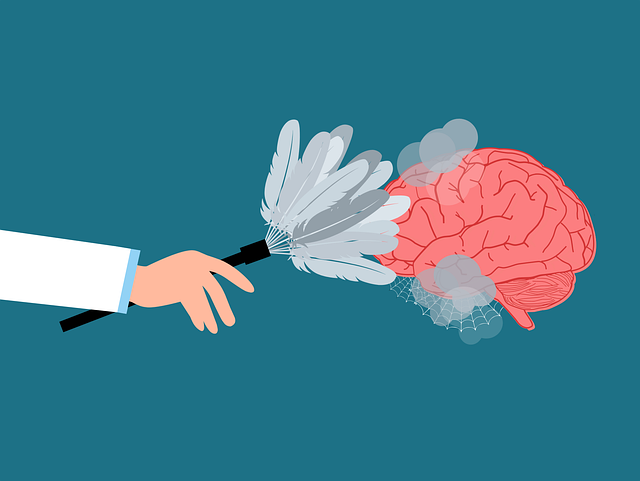Teens face unique challenges like starting school and social pressure, which can lead to substance abuse and undiagnosed mental health issues due to lack of awareness or stigma. Effective prevention strategies include therapy focusing on inner strength, mental health awareness, and coping skills development using evidence-based approaches like CBT, DBT, and MI. By empowering teens with healthy emotional regulation techniques, we reduce the risk of substance misuse as a coping mechanism during major life transitions. A holistic strategy involves addressing underlying factors through tailored therapy, stigma reduction, policy analysis, and advocacy to support teen mental health.
In the journey towards fostering healthy adolescence, understanding and mitigating substance abuse risks are paramount. This article explores comprehensive strategies to reduce substance abuse among teens, focusing on the intricate link between adolescent misuse and life transitions. We delve into identifying vulnerabilities, highlighting evidence-based therapy approaches, and offering a holistic perspective for supporting teens through major life changes. By examining these key aspects, we aim to equip parents, educators, and professionals with effective tools to guide young individuals away from substance abuse.
- Understanding the Connection Between Adolescent Substance Abuse and Life Transitions
- Identifying Risk Factors: What Makes Teens Vulnerable?
- Evidence-Based Therapy Approaches for Effective Risk Reduction
- Supporting Teens Through Major Life Changes: A Holistic Approach to Prevention
Understanding the Connection Between Adolescent Substance Abuse and Life Transitions

Adolescent substance abuse is often closely tied to major life transitions, such as starting high school, entering college, or facing the challenges of adolescence. These periods can bring both excitement and stress, leading some teens to turn to drugs or alcohol as a coping mechanism. Research suggests that understanding these life transitions and their impact on young people is crucial in developing effective prevention strategies. Many adolescents may lack the necessary coping skills and emotional resilience to navigate these changes healthily, which can increase their vulnerability to substance abuse.
Therapy for adolescent teens can play a pivotal role in addressing this issue. By incorporating techniques such as conflict resolution training and social skills development, therapists can equip young individuals with better tools to manage stress and interpersonal challenges. Moreover, emotional healing processes can help adolescents process and overcome the underlying trauma or anxiety that may contribute to substance abuse. Social Skills Training, for instance, enables teens to build a support network, fostering a sense of belonging and reducing feelings of isolation often associated with life transitions.
Identifying Risk Factors: What Makes Teens Vulnerable?

Teens are particularly vulnerable to substance abuse due to a combination of factors unique to this stage of life. Major life transitions, such as starting high school or college, can bring significant stress and anxiety. The need to fit in socially, coupled with peer pressure, plays a significant role. Additionally, mental health issues often go undiagnosed during adolescence due to a lack of awareness or stigma associated with seeking help. This period is characterized by intense emotional shifts, and without proper coping mechanisms, teens may turn to substances as a means of self-medication or escape.
Identifying these risk factors is crucial in developing effective strategies for prevention. Therapy for adolescent teens can be a powerful tool, focusing on building inner strength and resilience. By promoting mental health awareness and reducing the stigma surrounding mental illness, teens are more likely to open up about their struggles and seek help proactively. These proactive measures are essential in mitigating risks and ensuring that young individuals navigate these challenging life stages with appropriate support.
Evidence-Based Therapy Approaches for Effective Risk Reduction

Evidence-based therapy approaches play a pivotal role in reducing risks associated with substance abuse among adolescent teens, especially during major life transitions. Therapies such as Cognitive Behavioral Therapy (CBT), Dialectical Behavior Therapy (DBT), and Motivational Interviewing (MI) have proven highly effective in addressing the complex needs of this demographic. CBT helps adolescents identify and challenge negative thought patterns that may contribute to substance abuse, while DBT equips them with coping skills development and emotional regulation techniques.
These evidence-based practices not only address the underlying causes of substance misuse but also foster mental wellness coaching programs tailored to each teen’s unique experiences. By focusing on healthy coping strategies, emotional resilience, and personal growth, these therapies empower teens to navigate life transitions more effectively, reducing the likelihood of turning to substances as a means of coping with stress or uncertainty.
Supporting Teens Through Major Life Changes: A Holistic Approach to Prevention

Adolescence is a period of significant growth and change, often fraught with stress and uncertainty. For many teens, this phase coincides with an increased risk of substance abuse. A holistic approach to prevention involves addressing not just the behavior but also the underlying factors contributing to it. By providing therapy for adolescent teens during major life transitions, we can help them navigate these challenges more effectively.
This includes acknowledging and supporting their mental health, promoting emotional well-being promotion techniques, and fostering environments free from stigma associated with mental illness. Mental illness stigma reduction efforts and policy analysis and advocacy play a crucial role in this process, ensuring that teens receive the care and understanding they need to thrive. This comprehensive approach not only reduces the risk of substance abuse but also empowers teens to lead healthier, happier lives.
In addressing substance abuse among adolescents, understanding the intricate link with life transitions and identifying risk factors are pivotal first steps. This article has explored these aspects, highlighting the importance of early intervention through evidence-based therapy approaches tailored to this vulnerable demographic. By adopting a holistic perspective that incorporates support during major life changes, we can empower teens with the resilience needed to navigate challenges and make healthier choices. Integrating effective therapy for adolescent teens alongside significant life transitions holds the key to mitigating risks and fostering positive development.











